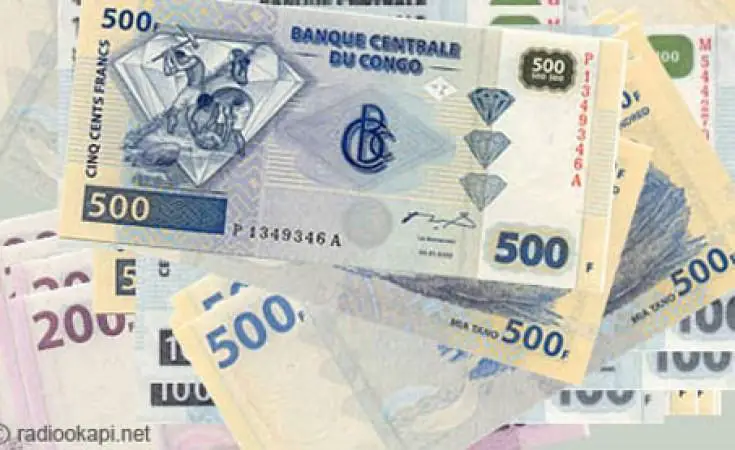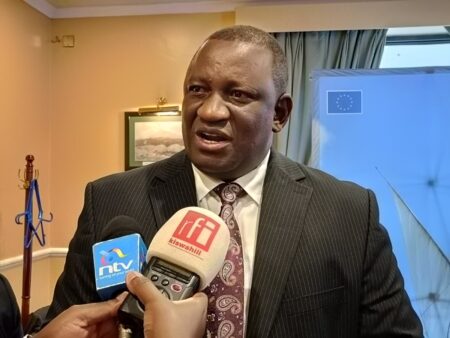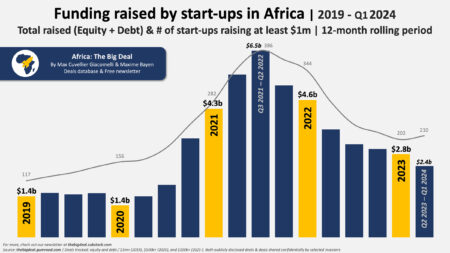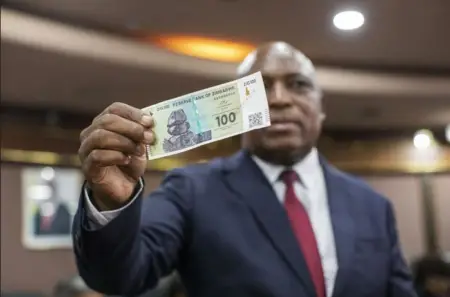The financial sector in the Democratic Republic of Congo (DRC) has not been one of the most sought after in the continent. The DRC has 18 banks, five of which are local, four pan-African and nine foreign. The DRC’s ratio of bank assets to GDP at 7% lags regional peers, while only 7% of the population holds a bank account.
Similar to steps taken in markets such as Zambia and Ghana, the Central Bank of Congo (BCC) has directed that all banks must raise their minimum capital to $50 million by the end of 2020. Banks have a number of options, to sell and exit, to merge, to raise capital or to step down the regulatory hierarchy to be a non-bank lender or microfinance institution.
It is such a move that is seeing foreign banks seeking new partnerships and ventures to help them remain in business.
Dutch entrepreneurial development bank FMO has announced the signing of a USD 10mln senior unsecured loan with Access Bank in the Democratic Republic of Congo.
This funding facilitates the finance of Access Bank’s small and medium-sized enterprises (SME) portfolio in the DRC. The project has a strong emphasis on social and environmental safeguards, particularly on potential human rights impacts. Access Bank and FMO have been working together to implement sustainable business practices across Africa since 2002.
This is FMO’s first investment in the country’s financial sector and was carried out after extensive research and careful client selection.
The transaction is in line with Goals 8 and 10 of the UN Sustainable Development Goals (SDGs), focused on Decent Work and Economic Growth, and Reducing Inequalities. It will support economic development in the DRC, where the majority of the population is unbanked and financial markets are underserved by foreign capital. Promoting loans to SME clients and providing them with access to capital will empower local entrepreneurs and support job creation.
Read also: Why Central Africa is dragging Africa’s growth(Opens in a new browser tab)
The loan will be allocated in two tranches of USD 5mln. FMO’s financing package is partially funded by the Dutch government’s MASSIF fund, which aims to take the early investment risks and act as a catalyst for the growth of the private financial sector while stimulating financial inclusion in developing countries with a focus on fragile states.
Access Bank is part of a pan-African financial group listed on the Nigerian Stock Exchange. It strives to deliver sustainable economic growth that is profitable, environmentally responsible, and socially relevant. FMO and Access Bank have a partnership in Nigeria and Ghana extending back almost two decades.
“A long-standing partner, Access Bank is a pioneering institution and shares our commitment to explore and develop new market segments, as well as new markets on the African continent. Together we have executed a long series of transaction and focussed on advancing ESG standards and access to finance for underserved parts of population through, for example, dedicated farmer and gender finance programs,” said Huib-Jan de Ruijter, Director Financial Institutions at FMO.
Speaking on the partnership, CEO, Access Bank Plc., Herbert Wigwe said,”Over the years, Access Bank has partnered with FMO to successfully deliver strategic financing for various segments across several regions. As one of the first major investments in Congo’s financial sector, this loan facility supports Access Bank’s effort to improve financing for the SME segment which indeed holds high potential for the enhanced growth of the country’s economy. As a Bank with a demonstrable commitment to sustainable development, we are truly pleased to be partners in this significant deal.”
FMO and Access Bank have given careful consideration to the complex operating environment and country risks in the DRC, which stem from its recent history of conflicts. Access Bank has a leading role in Africa on environmental, social and governance (ESG) topics and, over the years, has received various awards and recognitions for its sustainable banking approach. Extensive due diligence was conducted prior to the approval of the deal, with a strong focus on human rights impacts, by Environmental & Social Officers both from FMO and Access Bank Nigeria. Additionally, an external human rights consultant was engaged in this process.
“FMO invests in entrepreneurs who do not have access to commercial finance working in the world’s most challenging markets. Like us, Access Bank is a learning institution and has demonstrated their commitment to the environmental and social program that is part of this loan facility,” said De Ruijter. “Access Bank has a leading role in Africa on ESG topics, and we expect that with this new step we can support sustainable growth in the DRC.”
Through its continued partnership with Access Bank, FMO will support the organization in development and implementation of a well-functioning Environmental and Social Management System – a set of policies, procedures, and tools to help manage the bank’s exposure to the environmental and social risks of its clients as well as take any corrective actions needed.











